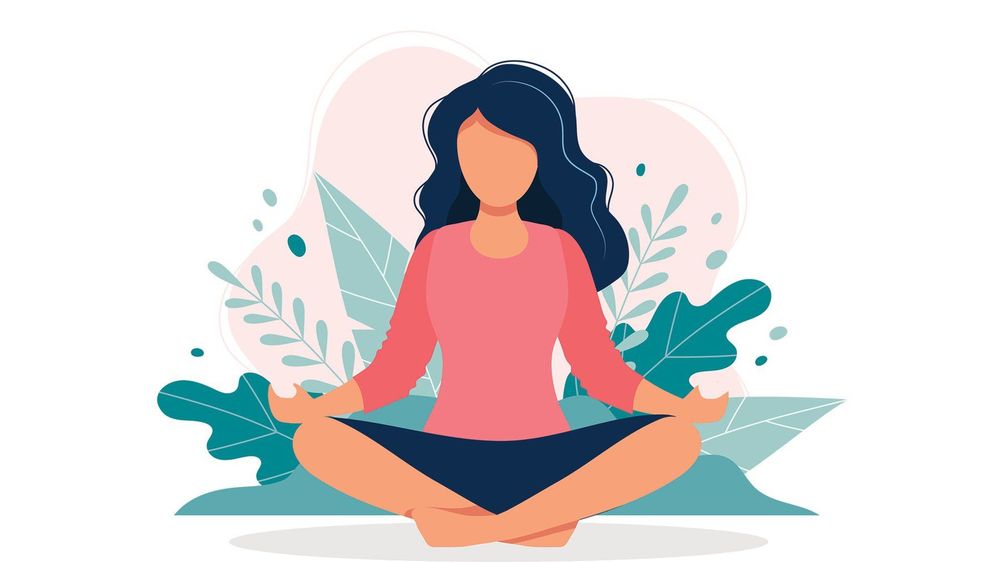This is an automatically translated article.
Meditation is the practice of intentionally focusing your attention on the present moment and accepting it without judgment. Meditation is currently being scientifically examined and found to be a key factor in stress reduction and overall happiness. Meditation gives the life of our lives more ability to regulate the good and the bad that we can achieve.1. What is meditation?
There are many things in life that are beyond our control. However, we can take charge of our own states of mind and change them for the better. According to Buddhism, this is the most important thing we can do, and Buddhism teaches that it is the only real antidote to our own personal sorrows, and worries and fears. , hatred, and general confusion surround the human condition.Meditation is a means of transforming the mind. Buddhist meditation practices are techniques that encourage and develop concentration, clarity, positive emotions, and equanimity seeing the true nature of things. By engaging in a specific meditation practice, you learn patterns and habits in your mind, and this practice provides a vehicle for cultivating new, more positive ways of living. With regular work and patience, these nurtured, focused states of mind can penetrate deeply into a peaceful and energetic state of mind. Such experiences can have a transformative impact and can lead to new understandings of life.
The use of meditation to improve emotions and regulate attention has a long history in Asia and is practiced by many people in Western countries. Much of the evidence for the effectiveness of meditation is either anecdotal or comparable between long-term meditators and age- and health-matched controls.
It was recently possible to establish changes in self-regulation in college students after only 5 days of meditation practice, allowing a randomized trial comparing the effects of meditation with self-control methods other controls such as relaxation exercises. The original research took place in Chinese universities; however, similar effects have been achieved with US students and Chinese children aged 4.5 and over, Chinese adults 65 and older. Studies using neuroimaging techniques have shown that meditation improves activation and connectivity in brain regions involved in self-regulation, and these findings may provide an opportunity for testing dealing with mental disorders in a new way.

Tập thiền có tác dụng gì là câu hỏi mà nhiều người thắc mắc
2. What are the effects of meditation?
Cultivation of meditation has its roots in Buddhism, but most religions include some kind of prayer or meditation technique that helps shift your thoughts away from your usual preoccupations toward appreciation. high moment and greater perspective on life.Practice mindfulness meditation into mainstream medicine and demonstrate that practicing mindfulness can improve both physical and psychological symptoms as well as positive changes in health, attitude and behavior .
2.1. Mindfulness meditation improves happiness
Strengthening your mindfulness supports many of the attitudes that contribute to a satisfied life. Mindfulness makes it easier to enjoy life's pleasures as they happen, helps you fully participate in activities, and creates a greater capacity to deal with adverse events. By focusing on the here and now, many people who practice mindfulness find that they are less entangled with worries about the future or regrets about the past, and are less preoccupied with worries about success and happiness. self-esteem, and better ability. to form deep connections with others.2.2. Mindfulness meditation improves physical health
If greater happiness isn't enough to encourage it, scientists have found that mindfulness techniques help improve physical health in a number of ways. Mindfulness can: Help reduce stress, treat heart disease, lower blood pressure, relieve chronic pain, improve sleep, and ease gastrointestinal upset.
Cách tập thiền hiệu quả nào cũng đều có chung mục tiêu là đạt được trạng thái tỉnh táo, tập trung
2.3. Mindfulness meditation improves mental health
In recent years, psychotherapists have turned to mindfulness meditation as an important element in the treatment of a number of problems, including: depression, substance abuse, eating disorders, marital conflict, anxiety disorders, and obsessive-compulsive disorder.3. How to practice meditation effectively
There are many ways to practice mindfulness, but the goal of any mindfulness technique is to achieve a state of alert, relaxed focus by intentionally paying attention to thoughts and feelings without judgment. This allows the mind to refocus on the present moment. All mindfulness techniques are a form of meditation.Basic mindfulness meditation: Sit quietly and focus on your natural breathing or on a word or “mantra” that you repeat silently. Allow thoughts to come and go without judgment and return to focusing on the breath or mantra.
Body sensations: Notice subtle bodily sensations such as itching or tingling without judgment and let them pass. Pay attention to each body part in turn from head to toe.
Senses: Noticing sights, sounds, smells, tastes, and touches. Name them “sight,” “sound,” “smell,” “taste,” or “touch” without judgment and let them go.
Emotions: Allow emotions to be present without judgment. Practice naming emotions in a steady and comfortable way: “happy”, “angry”, “disappointed”. Accept the presence of emotions without judgment and let them go.
Urges people: Deal with cravings (for addictive substances or behaviors) and allow them to pass. Notice how your body feels when the craving hits. Replace the wish for the craving to go away with the certainty that it will subside.
Please dial HOTLINE for more information or register for an appointment HERE. Download MyVinmec app to make appointments faster and to manage your bookings easily.
Reference source: webmd.com












